
I used to describe my busy schedule at the “best writing job in America.” But in the hectic pace of my life in those days, I now see myself avoiding my growing sense of dread and desperation. It wasn’t until years later that the scales began to fall from my eyes, allowing me to appraise my work life with honesty and to see myself for what I was: just another working person whose dreams of a decent future had slowly faded before the harsh realities of below-inflation raises and relentlessly rising health care costs.

It was an ad on a subway train that first gave me the idea to become a teacher. In March of 2003, my senior year of college, I was riding along listening to my MP3 player when I looked up and saw an advertisement for New York City Teaching Fellows—a black background with stark white lettering: “How many lives did your last spreadsheet change?” The job seemed like a challenge, and that was what I was looking for.

Contingent faculty constitute an academic proletariat, where a lack of workplace control, negligible job security, and prevailing low wages define the conditions of employment. In response to these conditions, previously solitary academic laborers are joining together in an attempt to speak with a collective voice.
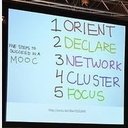
The initial promise was that Massively Open Online Courses would function as a free educational commons, along the lines of other free internet resources. The new MOOC strategy, however, involves rich universities being paid by poor ones.

Berkeley politics flesh out uncertainties if not downright disagreements on the left over “growth,” environmentalism, U.S. manufacturing, homelessness, and public employee compensation. To grasp the political realities of today’s Berkeley is not only to dispel an antiquated myth about an iconic place; it’s also to begin to grapple with major incoherence in progressivism at large.
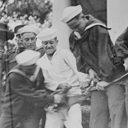
“Is there such a thing as the left and right? What distinguishes them, not just in our time but across time?” Bruce Robbins and James Livingston argue with Corey Robin and Michael Kazin about their recent attempts to theorize the political spectrum.

At the American Civil Liberties Union’s national headquarters in New York City, four months of negotiations have failed to bring unionized office staff to an agreement with management over the terms of their employment. Last Wednesday these employees held their …
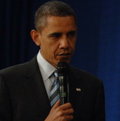
Obamacare will help all Americans in significant ways, yet it remains controversial. What will it take for the program to join Medicare and Social Security as a permanent part of America’s system of social insurance?

In the past week, two new stories of brutality have called China’s attention to the lawlessness of controversial “urban management” teams known as chengguan.

A new set of reality shows thrive on foreclosed property and unpaid bills; they promote a bargain-basement ethos where everything has a price, and where discovering and comparing those prices is a source of pleasure.
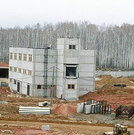
Russian and American nuclear scientists perceived the remarkable similarity of the workings of the Russian Ministry of Atomic Energy and the American Department of Energy. Now, as the opening of secret archives and closed cities has since set loose a flood of historical writing about atomic weapons programs, Kate Brown’s Plutopia offers a comparative study.
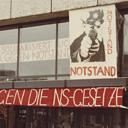
The German new Left was too close to the history it so desperately wanted to negate; it could not develop a sane or truthful relationship to the crimes and the cruelty of the Nazi era. Haunted by visions of the gas chambers, it believed that the only alternatives were the creation of a utopia or the recreation of Auschwitz.
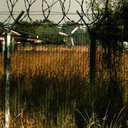
Violence has ebbed and flowed in Darfur for more than ten years now. Now, though the situation is almost totally absent from news coverage, the region teeters on the edge of a complete humanitarian collapse and uncontrollable violence.

Legal precedent is against the recent Supreme Court decision to gut the Voting Rights Act. There is, however, a grim precedent for the Roberts Court in the Civil Rights Cases of 1883, which also turned the law on its head.
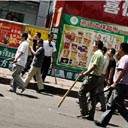
The violence that occurred in Urumqi, capital of the Xinjiang region in western China, on July 5, 2009 was both shocking and predictable. Four years later, what are the prospects for further unrest in Xinjiang?





















